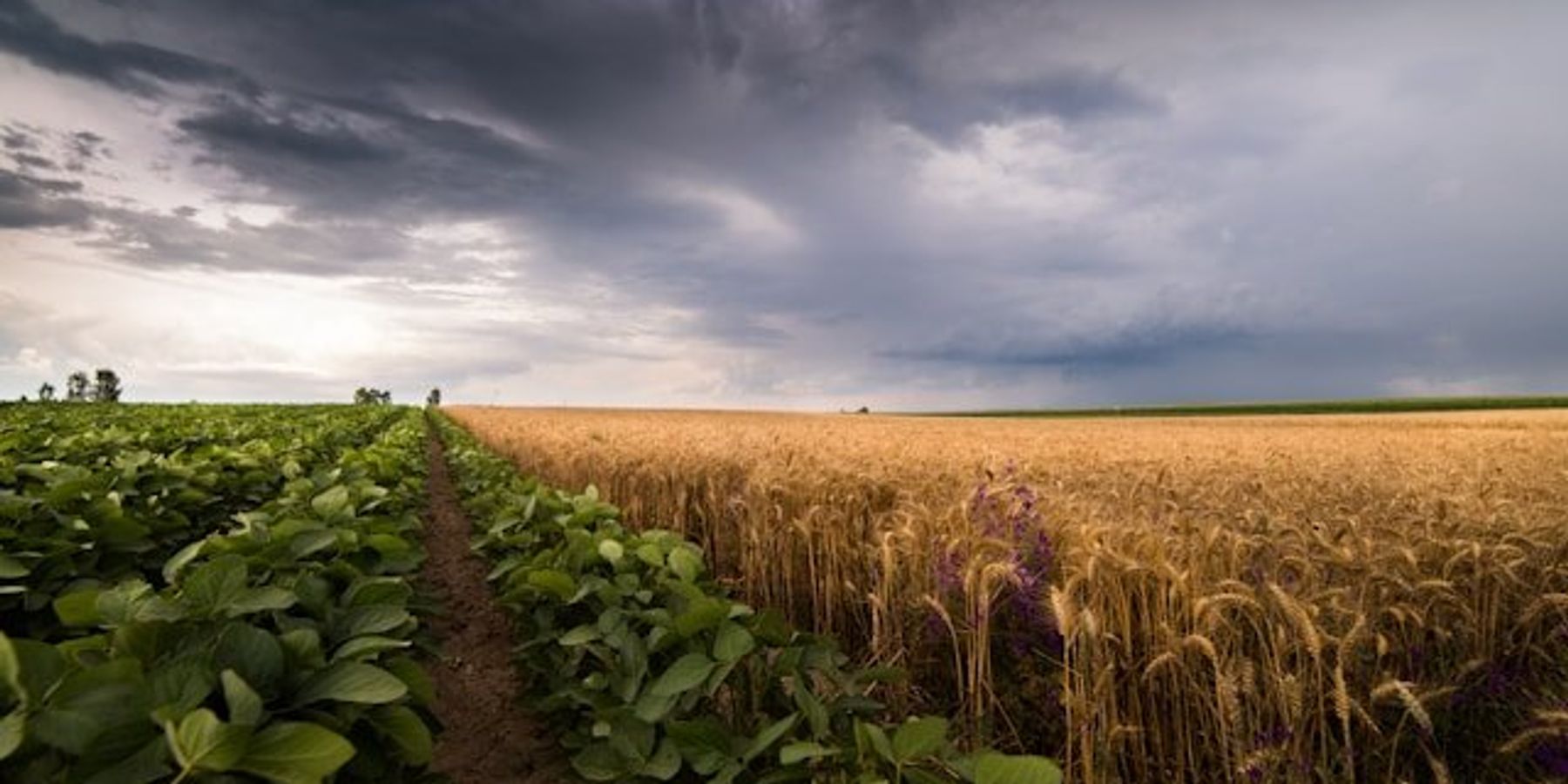
Tariffs and extreme weather push Midwest farmers to the brink
Farmers in Ohio and across the Midwest are grappling with crop loss from climate swings and falling profits from export tariffs, as global markets shift away from U.S. soybeans and corn.
Stephen Starr reports for The Guardian.
In short:
- Eastern Corn Belt farmers report heavy losses from both drought and flooding in consecutive seasons, with some forced to plant late in poor conditions and others battling disease fueled by excessive rain.
- Since President Trump imposed tariffs on China, American soybean exports to their largest buyer have plummeted, dropping to a 20-year low and making U.S. crops less competitive globally.
- Despite $60 billion in promised subsidies, many small and mid-sized farms say they are being left behind, with rising costs, shrinking herds, and a lack of export demand worsening an already fragile farm economy.
Key quote:
“Tariffs are probably something that will help in the long run, for the whole country; in the short run it’s terrible for farmers.”
— Brian Harbage, Ohio farmer
Why this matters:
The U.S. farm economy sits at the intersection of global trade policy and climate change. Soybeans and corn feed livestock, power ethanol fuel, and serve as raw materials in countless processed foods. Farmers now face a cascade of setbacks: Tariffs have shrunk their access to global markets, while extreme weather is destroying what they can grow. This dual threat is especially dangerous in rural regions, where agriculture dominates both the economy and local identity. As crop diseases spread with warmer, wetter conditions, and long-standing export relationships falter, even large-scale operations are showing signs of distress.
Learn more: Climate change exacerbates spring planting anxieties for Midwest farmers













